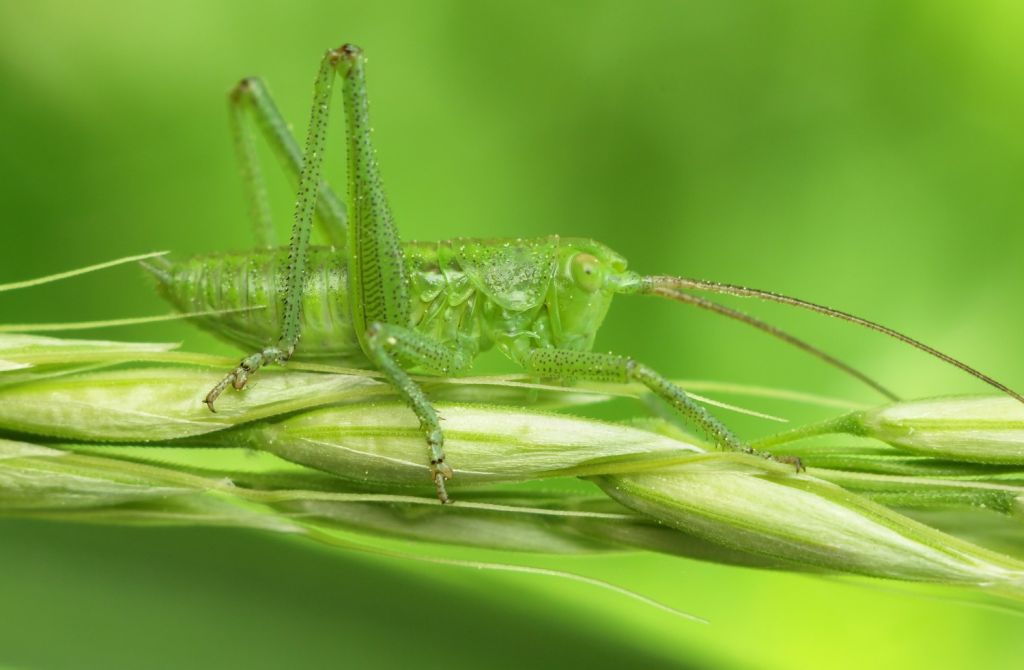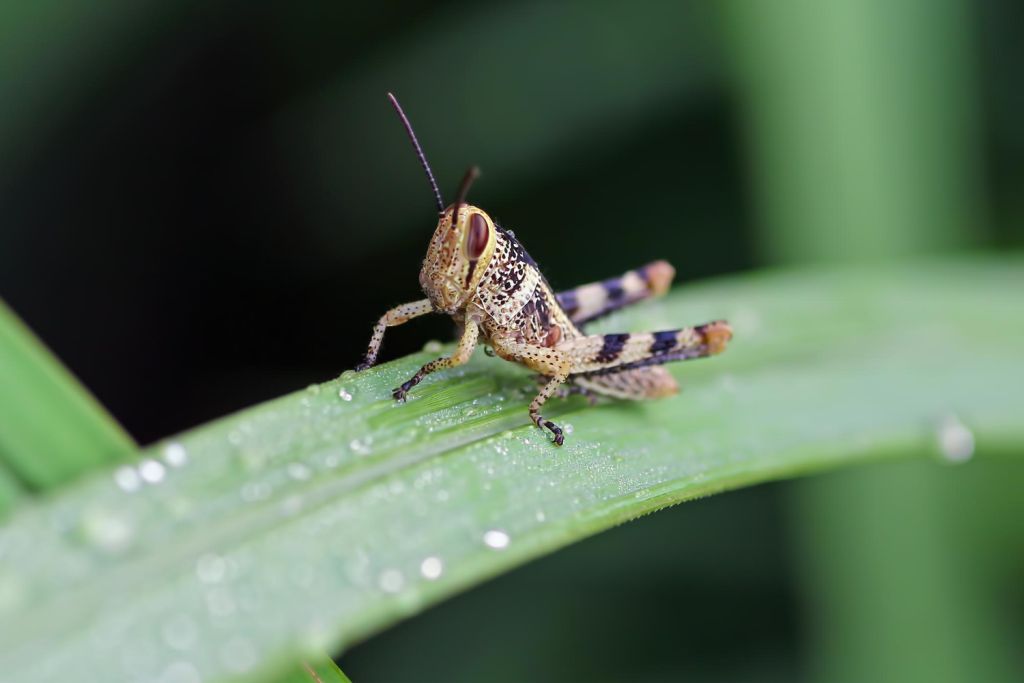Can Grasshoppers Bite You?
We all know that grasshoppers are impressive jumpers, but have you ever wondered if they can bite you? The answer is yes, they can bite. However, it’s not as simple as that, so let us explain it in detail in the following sections.
Grasshopper Behavior and Defense Mechanisms
When Does Grasshoppers Bite?

Does a Grasshopper Bite Hurt?
Typically, a grasshopper bite is not considered very painful. We would describe it as a sting or a mild pinch. However, the „pain“ level can vary depending on the grasshopper size.
You are probably wondering, are grasshoppers poisonous?
Fortunately, these insects do not have venom, so their bites are harmless, the discomfort goes away shortly after the bite, and they do not cause any considerable injury.
However, make sure to clean the area of the bite to prevent any potential infection.
The Potential Risk of Grasshopper Bite for Humans
How to Treat a Grasshopper Bite?
What Attracts Grasshoppers?
How to Get Rid of Grasshoppers
If the grasshopper population in your yard or garden is becoming unbearable, here’s how to get rid of them:
One of the best ways to control their population is with natural predators. Encourage birds and other predators to visit your yard or garden.
You can also protect your plants with physical barriers such as row covers or fine mesh. Furthermore, try applying organic insecticides, such as neem oil, to deter grasshoppers from your garden without harming other beneficial insects simultaneously.
Implementing these methods will help you maintain a healthy garden without insects.
Conclusion
These fascinating insects might bite you if they mistake your skin for food or feel threatened by you. It’s important to understand their behavior and when grasshoppers bite to ensure your interactions with these creatures are safe, and this is how you will avoid getting bitten.
However, if they bite you, cleaning the wound is essential, but their bites are generally harmless and easy to treat, so no need to worry.
Follow these simple steps to protect yourself and your garden from grasshoppers. Happy gardening!





